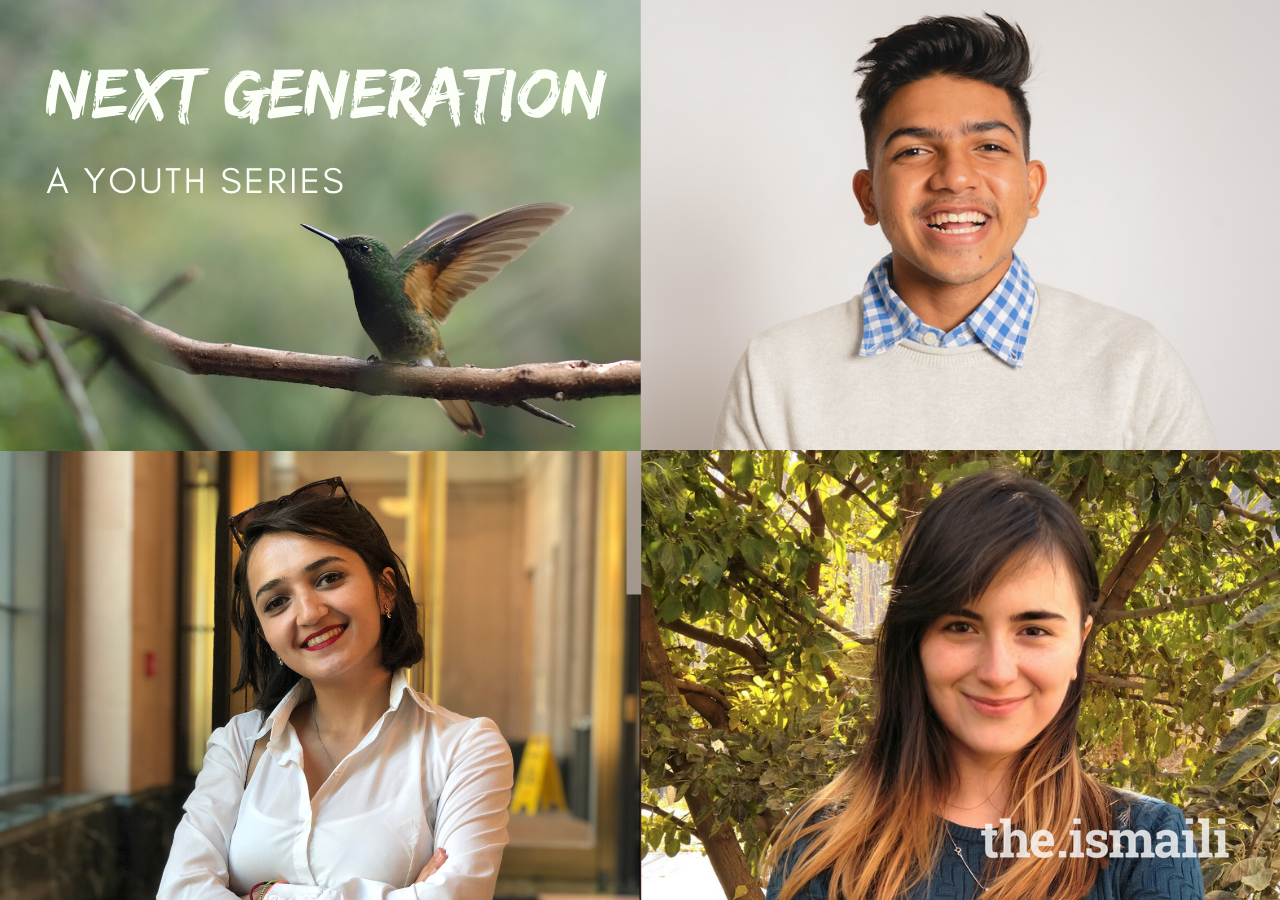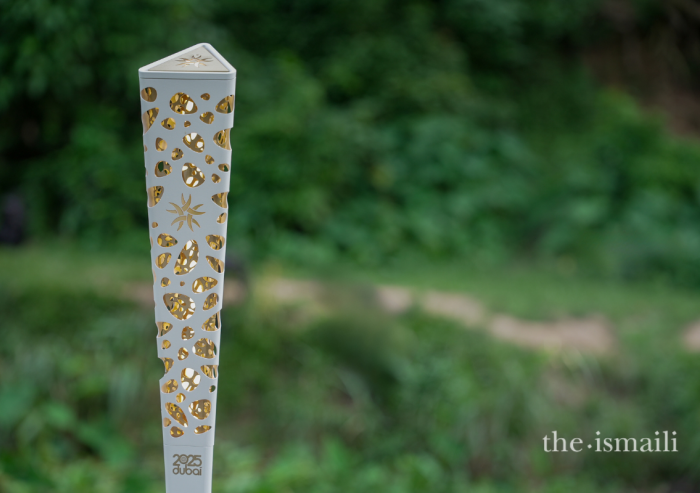Nitasha Aslam (Pakistan)
Growing up in Gilgit-Baltistan in Northern Pakistan helped 22-year-old Nitasha Aslam nurture her two biggest passions: protecting the environment and working with children.
As a Girl Guide and volunteer in Jamatkhana, Nitasha often participated in environmental campaigns and cleanups around her community. Her engagement with these activities and her exposure to the natural disasters occurring around her community influenced her to find meaningful ways in which she could contribute to protecting the environment.
Nitasha, who was educated at the Aga Khan Higher Secondary School in Hunza, has a second passion: her interest in child development, which was inspired by her experience taking care of her nieces. One day, while watching a video on child psychology, Nitasha learned about how the conditioning of children from an early age can lead to the formation of life-long, positive habits.
“That was an ‘aha’ moment for me,” she said. “That day, I learned that the best way to change societal behaviors was to work with children first.”
A few years later, as a student at the University of Central Asia, Nitasha was finally able to merge her two passions as a member of the “Green Community,” a student-led environmental club on campus. In partnership with USAID, Nitasha and her fellow students started a project to produce children’s books discussing environmental issues within the specific context of Central Asia. Using storybooks as a medium for conveying information, they hope to teach children about the impacts humans can have on the environment, equipping students with the knowledge they need to be agents of change when they grow older. Currently in the final stages of production, the books will soon be published and distributed to schools across Tajikistan.
In the future, Nitasha hopes to be able to bring her project to her birthplace in Murtazabad, Hunza.
“I have been incredibly blessed to have had opportunities to give back to the communities which hosted me thousands of miles away from my country, but I have never found the right time and opportunity to go back to my hometown,” she said. “Before I take this project to other places in the world, I would be honoured to take it back home first.”
Ziyaan Virji (Tanzania)
As an IB student at the Aga Khan Academy in Mombasa, 18-year-old Ziyaan Virji learned about the social, political, and economic effects of climate change. Inspired by what he was being taught in the classroom, he decided to turn that learning into action by finding ways to make his school community more environmentally friendly.
Working together with fellow students, teachers and staff, Ziyaan started a zero-waste initiative called “P^3 (Prevent, Protect and Promote)” with the aim of bringing the Academy closer to being a zero-waste community. After analysing the areas of the school environment where there were large amounts of waste, the students brainstormed ways in which more sustainable practices could be implemented.
As a result of the team’s efforts, the Academy was able to eliminate single-use plastic cups, reduce paper waste, increase recycling efforts in collaboration with external partners and redirect food waste to composting. Realising the environmental impact involved with the farming process of meat products, Ziyaan and his team also worked with the school’s kitchen staff to implement vegetarian meals on Fridays to reduce the school’s carbon footprint and generate greater awareness about climate issues among students.
In addition to leading P^3, Ziyaan also frequently organises beach cleanups in his home city of Dar es Salaam.
“Every action we take can have a huge ripple effect and can create a meaningful, lasting impact,” he said.
Ziyaan will be attending the University of British Columbia in September and plans on studying business. In the future, he hopes to use his education to further explore social entrepreneurship and how business concepts can be used to create both economic and social value. When asked what advice he has for youth looking to get involved with environmental projects, he encouraged them to start small and work together.
“We can only create a lasting and meaningful impact when we work together. As an African proverb suggests, ‘Alone, you will go fast. Together, we will go far.’”
Nuriya Mullo-Abdolova (Tajikistan)
Sparked by a desire to make her campus community more environmentally friendly, 21-year-old Nuriya Mullo-Abdolova, a student at the University of Central Asia’s Kyrgyzstan campus, decided to start a number of initiatives to improve her school’s sustainability.
One such initiative is a project focused on promoting recycling. Together with her fellow students, Nuriya helped design a system for effectively collecting and organising recyclable waste across campus. Once collected, the team then coordinates the transportation of the items to local recycling centres. Since its inception, the project has since grown to encompass both UCA campuses and helped redirect recyclable waste that would have otherwise gone to landfills.
Along with their recycling project, Nuriya and her team also organise regular cleaning campaigns around their campus.
“Through our projects, we hope to raise awareness about the environmental challenges facing our communities,” she said.
Along with leading several initiatives on campus, Nuriya also believes in taking personal accountability for the ways in which her actions impact the environment. From using fewer single-use plastics to minimising her food waste, she has found multiple ways to reduce her carbon footprint.
“I have learnt that being eco-friendly can actually be a lot of fun,” she said. “I have changed my habits to start using my own reusable bag while shopping and recently started composting.”
In the future, Nuriya hopes to build on the growing trend towards sustainable living by opening a zero-waste, package-free business in her home city of Dushanbe. Through providing plastic-free products, she hopes to make it easier for people in Central Asia to live an eco-friendly lifestyle. When asked what advice she has for other youth interested in supporting the environment, she encouraged them to be bold and ambitious.
“It can sometimes feel like those around you don’t understand why the work that you are doing is so important,” she said. “Be patient and make an effort to educate the people around you about what you believe in so that you can inspire others to make a difference as well.”








